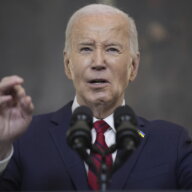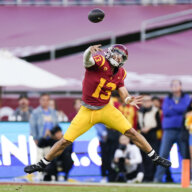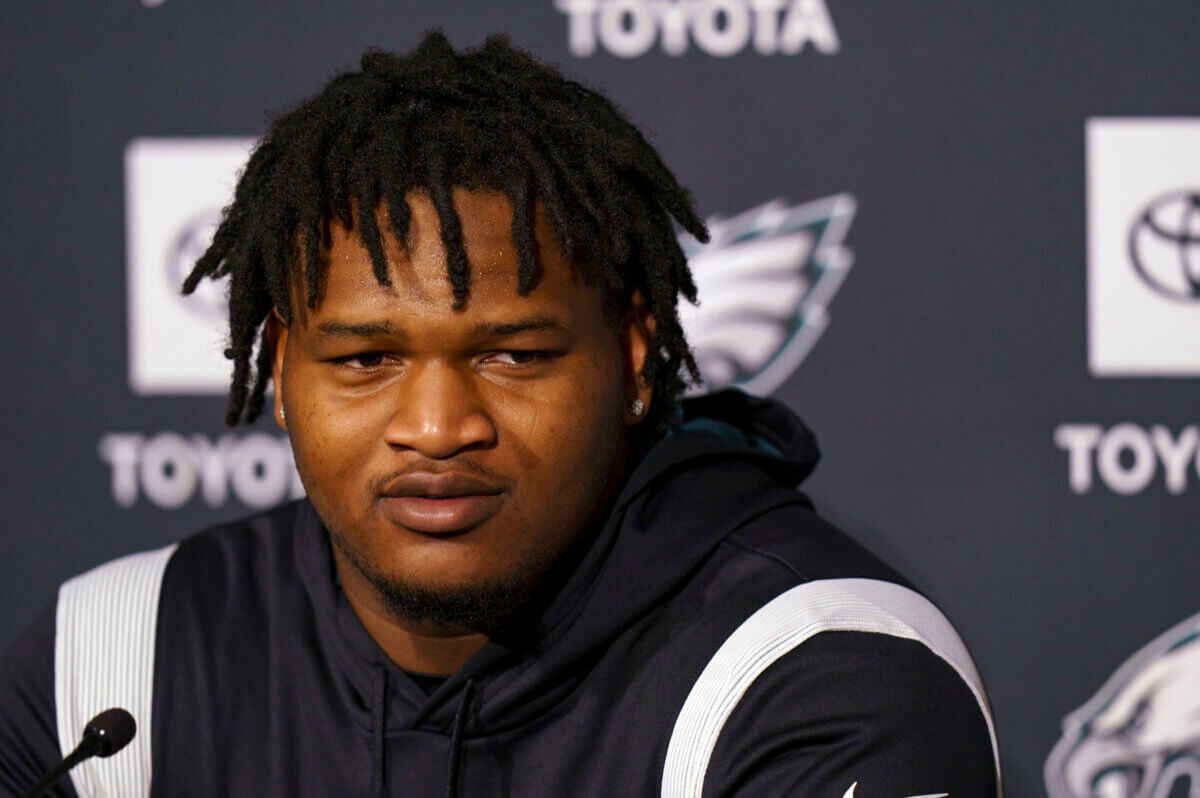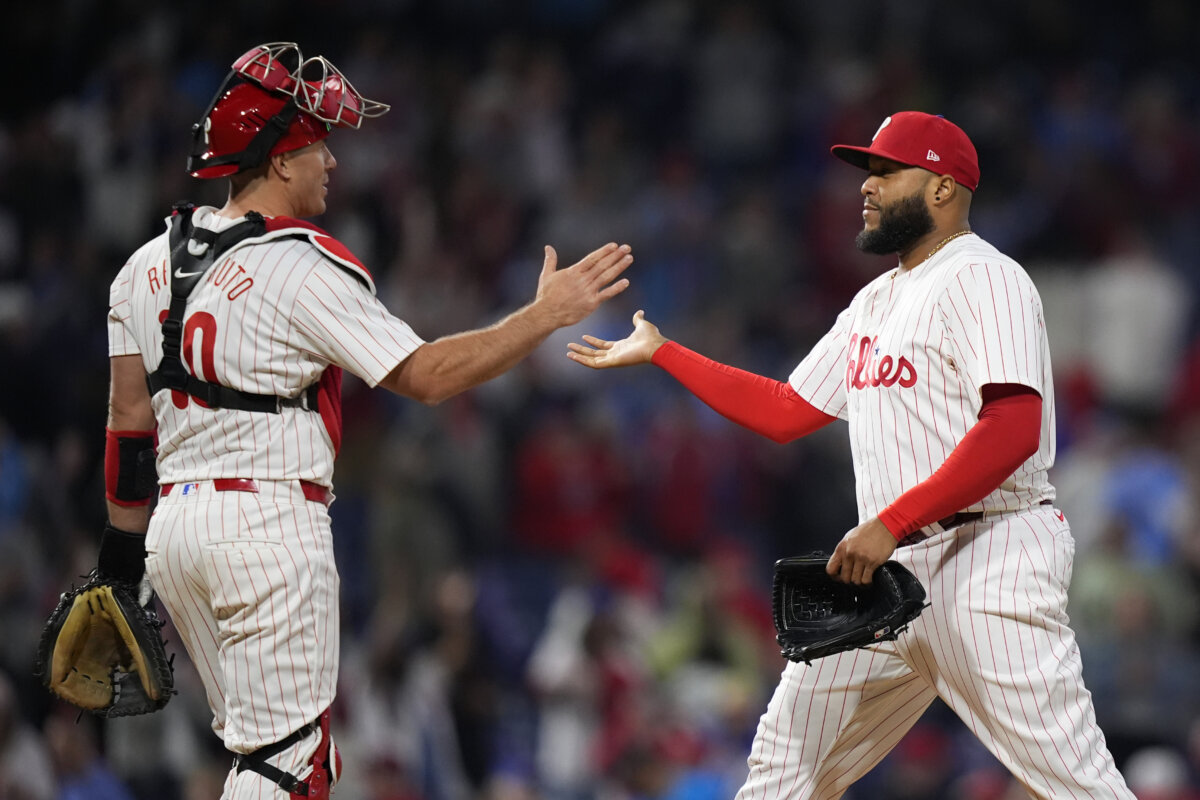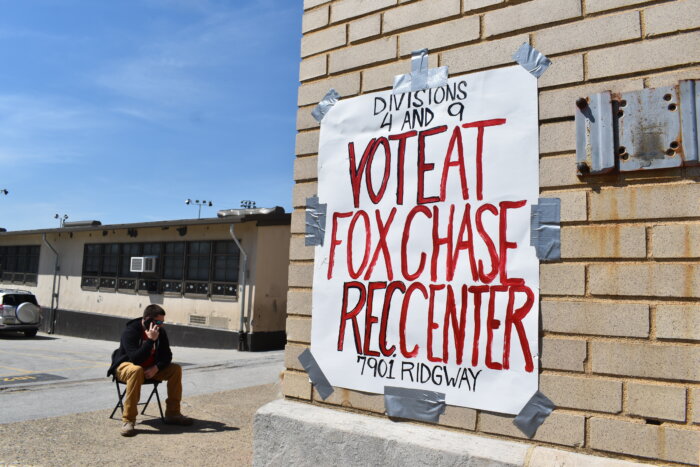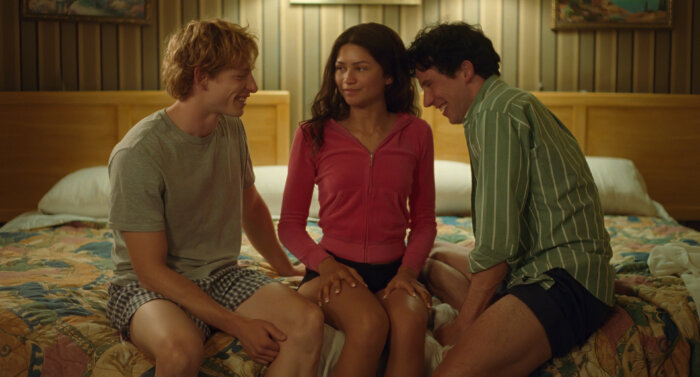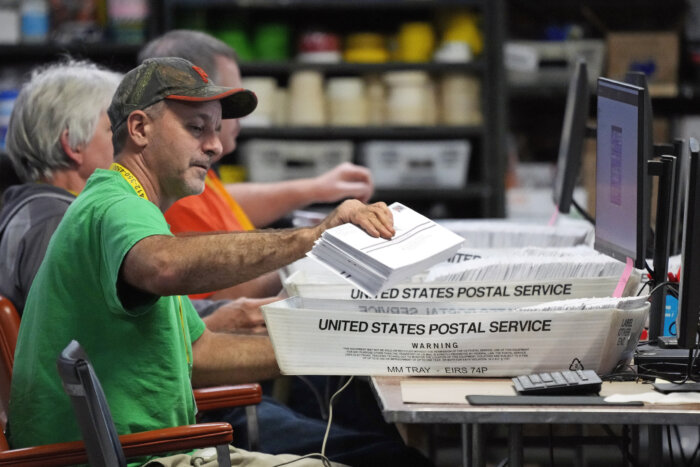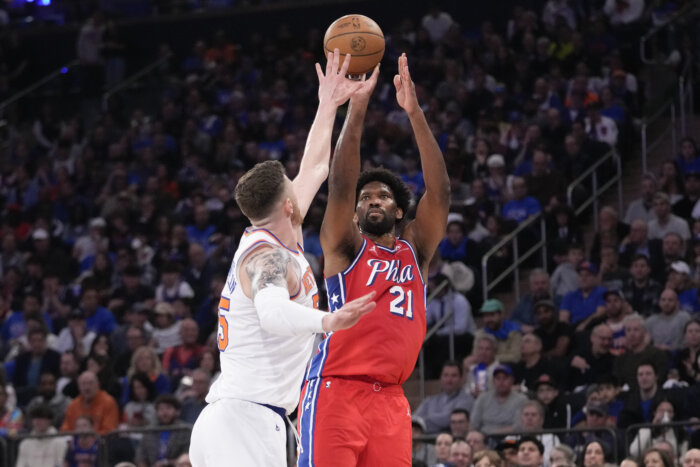 Riley Cooper became a go-to receiver for Nick Foles and the Eagles in 2013. Credit: Getty Images
Riley Cooper became a go-to receiver for Nick Foles and the Eagles in 2013. Credit: Getty Images
When Riley Cooper signed a five-year, $25-million contract with the Eagles last week, it was the latest plot twist in one of the most improbable comeback stories in Philadelphia sports history. Eight months after his reputation was in ruins and his NFL career appeared over, he is a born-again football hero.
He did not navigate this remarkable journey alone. In fact, his refurbished image is the best indication yet of just how smart the Eagles have become since Chip Kelly arrived to coach the team 14 months ago. How to save a career, in four remarkable steps:
Step one: Leave the scene of the crime
After video of Cooper blurting out the n-word at a Kenny Chesney concert surfaced last July, the wide receiver left the team to consider what he said and why he said it. After a long weekend —four days, really —Cooper came back. By all accounts, he underwent no sensitivity training, no psychological testing, nothing. He just apologized profusely, and started playing again.
Step two: Have understanding teammates
The only reason Cooper has a guaranteed $10 million in his pocket is because Michael Vick welcomed him back with words and actions that reflected a sensitivity honed during Vick’s own struggles in prison. The one thing Vick couldn’t do was improve Cooper’s status as a non-entity in the offense, as the wide receiver’s eight catches in the first six games illustrated. That’s when Vick found another way to help.
Step three: Catch a break
Vick’s injury in game six was actually the turning point in Cooper’s renaissance, since it brought Nick Foles onto the field, where the young quarterback exploited his favorite target’s size and sure-handedness. Not only did Foles throw the ball to Cooper twice as much as Vick did, but they combined for seven touchdowns together in the final 10 games of the season.
Step four: Listen to Chip Kelly
The director of this amazing comeback story was Chip Kelly, start to finish. The coach was the one who refused to release Cooper right after the Chesney video, even though there was no guarantee the player would make the roster anyway. Kelly was also the one who sent Cooper home while the story cooled down. And ultimately Kelly called the plays that exploited Cooper’s previously underutilized talents.
In the end, Cooper said he never intended to sign anywhere else after the crazy last eight months. He said he loved being an Eagle, loved working with Foles, and especially loved playing for Chip Kelly. No one had to tell Cooper how lucky he was to be in the right city, with the right people supporting him.
Chip Kelly accomplished much more than expected in his first year, and nothing he did was more amazing than bringing Riley Cooper’s career back from the dead.
Miguel Alfredo-Gonzalez, mystery man
For the past six months, Miguel Alfredo Gonzalez has been baseball’s man of mystery, a Cuban defector whose live right arm convinced the Phillies to offer him $48 million even though he hadn’t pitched competitively for close to two years. Well, Gonzalez finally made his U.S. debut last Saturday, and now the questions are even louder.
Against a mish-mash of big leaguers and young prospects, Gonzalez labored through five outs against the Yankees, walking four, allowing one run and two hits and throwing an astonishing 51 pitches. There was almost no evidence of the 95-mile-per-hour fastball that was once his primary attraction; both of his strikeouts came on change-ups to minor-leaguers.
Who is this man, and why is he on the Phillies?
Even now, no one has a logical answer to that question. First of all, it is inconceivable that Gonzalez was willing to take a 400 percent cut in pay, to $12 million, after the Phillies flunked him on his first physical exam. Why didn’t Gonzalez take one of the other offers? Were there any other offers?
After his faltering debut, Gonzalez actually made the situation even worse when he called it “a great first time out,” raising questions about his grasp of English, too. As one of the fans behind home plate Saturday in Tampa, I can say with great confidence that Gonzalez‘ first game was not great, not good, not even mediocre. The best word I can offer is alarming.
And what was most alarming was the original decision by the Phillies to offer someone with no big-league experience, dubious health and an ordinary fastball $48 million. Gonzalez did not look good at all Saturday in Tampa. And neither did GM Ruben Amaro Jr.
Struggling Sixers look back to look forward
When your present stinks, live in the past. That’s the credo right now of the Sixers, who rolled out Allen Iverson yet again last weekend for another curtain call, and one more excuse for fans to buy tickets to an otherwise unwatchable game.
Iverson was the biggest attraction in Philadelphia’s pro basketball history, bigger than Wilt Chamberlain, bigger than even Julius Erving. What the tiny guard from Georgetown had that those other legends didn’t is a deep connection with the fans. He sold more seats. It’s that simple.
But there comes a time when the well runs dry, and that moment has arrived for Iverson. He had a tribute night the first game back in his second tour here, at the end of that season, again in the opener this year and once more on Saturday night. What’s left to say?
The saddest part of Iverson’s repeated encores is the reminder that nothing good has happened in the 13 years since the Sixers made it to the NBA Finals with him. The contrast between those sold-out games, those electric moments, those jubilant crowds and today’s joyless, empty era is jarring.
It is no secret that Iverson’s fate has taken an ugly turn of its own in the past decade, as he faces a very public divorce and well-documented money problems. The transition to life after basketball seems especially difficult for Iverson, and the cheers probably offered some solace.
But enough is enough. It’s time for a truly beloved hero to move on, and for the Sixers to find somebody new for the fans to cheer.
Idle thoughts
- The best news of the week for the Phillies was the addition of Mike Schmidt to the broadcast booth for 13 Sunday home games this season. Not only does this mean that baseball’s greatest third baseman is recovering well from recent medical issues, but also that the most honest voice in the organization will be heard on a regular basis. Bravo.
- Want a theory on why the Phillies shocked baseball by reporting fifth-round draft pick Ben Wetzler for using an agent after he rejected their offer? They thought they had a handshake deal, so – in a fit of pique – they cost the pitcher an 11-game NCAA suspension at Oregon State. It was a bush-league move by the Phils.
- Danny Granger’s tenure on the Sixers lasted all of six days, and he never made it onto the court with his new team. Still, he had a glorious run here compared to the franchise’s last big-name non-player, Andrew Bynum.
- The Eagles signed four top players last week — Jason Peters, Jason Kelce, Jeremy Maclin and Riley Cooper — with almost no drama, proving once again that this is not Joe Banner’s team anymore. Has anyone ever been missed less than the penny-pinching, unemployed ex-president?
- If Richie Incognito is looking for some understanding now that he’s under psychological care after trashing his Ferrari with a baseball bat last week, he is wasting his time. The Dolphins bully deserves the same kind of sympathy he gave during his reign of abuse. In other words, none.













